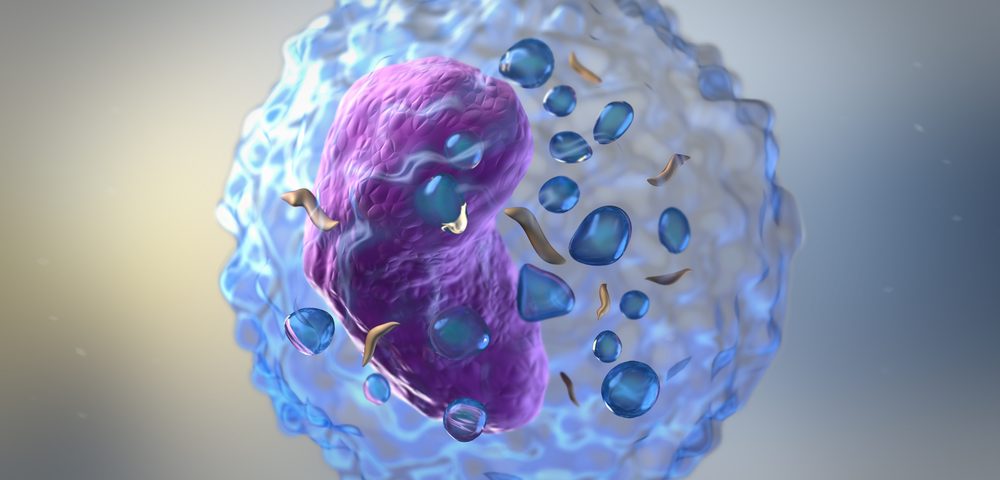B-cells have a protein that controls their metabolism — allowing them to adapt and work differently depending on where they are in the body, whether the spleen, lymph nodes or blood. This discovery may open research into how these cells’ metabolic processes are controlled in lymphoma, and into new treatment approaches.
The study, “Gsk3 is a metabolic checkpoint regulator in B cells,” was published in the journal Nature Immunology.
In the complex life cycle of B-cells, various stages are linked to very different energy needs. But few studies have examined the mechanisms that control metabolism in these immune cells.
Researchers discovered that a protein, called GSK3 (glycogen synthase kinase 3), acts as a sensor of the variable metabolic requirements a B-cell may have. B-cells are produced in the bone marrow, but accumulate in the spleen and lymph nodes, in so-called germinal centers, to mature and develop specific immune profiles.
“Our research shows that the protein GSK3 plays a crucial role in helping B cells meet the energy needs of their distinct states,” Robert Rickert, PhD, director of the Tumor Microenvironment and Cancer Immunology Program at Sanford Burnham Prebys Medical Discovery Institute, said in a press release. “It acts as a metabolic sensor, or checkpoint, that promotes the survival of circulating B cells while limiting growth and proliferation of B cells in germinal centers.”
“The findings are particularly relevant for certain B-cell pathologies, including lymphoma subtypes, where there is an increased demand for energy to support the hyperproliferation of cells in a microenvironment that may be limited in nutrients,” he said.
B-cells also patrol the body by circulating in the blood stream. While patrolling B-cells consume few nutrients, those that sit in lymph nodes require huge amounts of energy. GSK3 fine-tunes metabolic processes so that these energy demands are met in a safe way.
In circulating cells, GSK3 simply limits the metabolic activity. But in the B-cells undergoing maturation processes, the changes are more specific. When B-cells in the lymph nodes have consumed all available sugar, they turn to a secondary means of harnessing energy, called glycolysis. This pathway is less efficient for metabolism, and generates plenty of reactive oxygen species as byproducts.
The team found that GSK3 limits glycolysis to protect cells from oxidative damage. The protein also restricts the production of new mitochondria, which are cellular power plants. While this move may seem counterintuitive, it aims to protect the cells from oxidative damage, as a rapid synthesis of new mitochondria also gives rise to oxidative compounds.
“Our results were really surprising,” Rickert said. “Until now, we would have thought that slowing metabolism would only be important for preventing B-cells from becoming cancerous — which it indeed may be. These studies provide insight into the dynamic nature of B cell metabolism that literally ‘fuels’ differentiation in the germinal center to produce an effective antibody response.”
Whether the protein is a potential therapy target for B-cell diseases is still too early to say. “[B]ut this research opens a lot of doors for further studies,” Rickert said. “To start with, we plan to investigate how GSK3 is regulated in lymphoma and how that relates to changes in metabolism. That research could lead to new approaches to treating lymphoma.”


